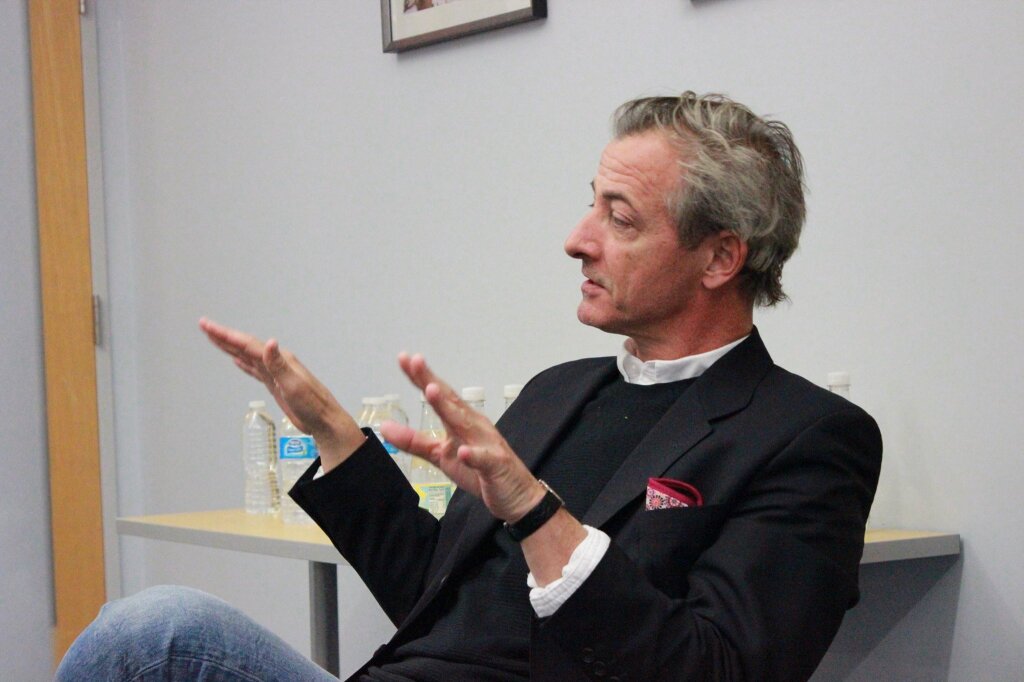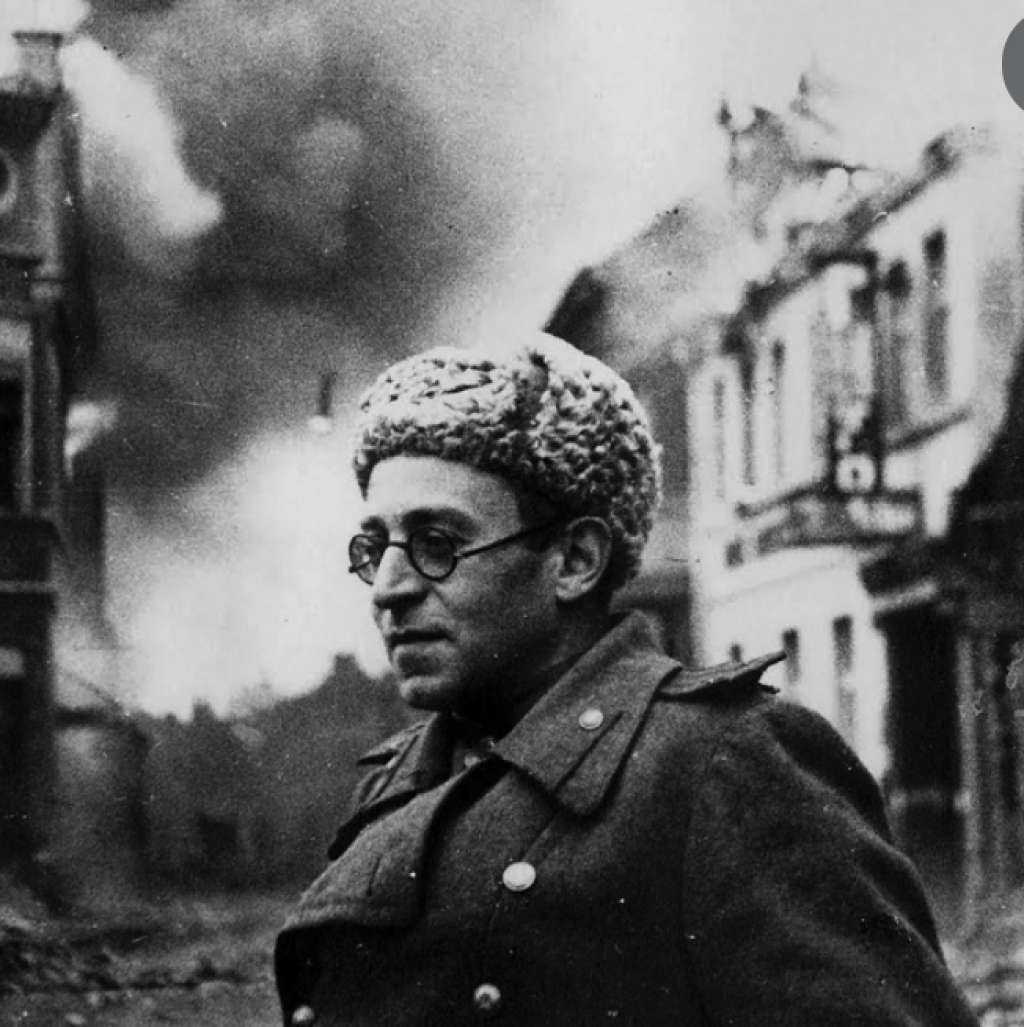On April 2, 2016, the NYU Jordan Center for the Advanced Study of Russia hosted the 37th Annual Meeting of the North East Slavic, East European and Eurasian Conference (NESEEES, a regional conference of ASEEES). Panel discussions were held throughout the day, with scholars at the junior and senior level, as well as graduate and undergraduate students, to present their work. After being introduced by the Executive Director of NESEEES Susan Smith-Peter, NESEEES President and Jordan Center Director Yanni Kotsonis provided the keynote address, entitled “Babushka and the Sewing Machine, and Other Instructive Fails during My Travels in Russia.”
Forgoing a traditional speech, Kotsonis chose to supplement the academic agenda of the conference and relay personal anecdotes about his experiences studying and doing research work in Russia. “Anecdotes that we experience won’t make it into the CV, it won’t make it into our books because it’s not scholarly enough, […] but it is instructive,” he said. “[T]here’s something more to it than just a joke.”
Kotsonis shared six anecdotes about his travels, all of which, he said, “were failures in different ways.” His stories aimed at showing the shortcomings of academic training, particularly regarding field research. The trips he took to Russia betrayed “my own misunderstandings, my own ignorance, and sometimes my overly professional and overly educated attitude,” he added.
This point was stressed in Kotsonis’s first story, which he entitled “Babushka and the Sewing Machine.” In March 1991, around the time of the Soviet Union referendum, Kotsonis was travelling with a Russian friend to the latter’s home village in the far northeast of European Russia, near a town called Kichmensky Gorodok. Arriving at the log cabin of his friend’s mother – a woman in her 80s – Kotsonis , then a student of agricultural history, inquired about her experience with collectivization in the village.
“She had no idea what I was talking about,” Kotsonis said. “Because the historiography had taught me so clearly that this was the periodization, I was imposing the periodization on her.” He reiterated his question, asking the woman about the time when the government seized her land, but she still did not understand. It was not until her son said, “Mama, it’s when they took the sewing machine!” that the woman realized what Kotsonis meant and started talking.
While scholars’ periodization of “collectivization” is more or less right, the babushka’s experience told a story different from that told in history books. For her, collectivization was the process by which the Soviet government stripped peasants of their valuables, not necessarily the seizure of land. In the late 1920s, tax collectors arrived in the babushka’s village, taking marketable items like her samovar and her sewing machine.
“As she spoke to me, I began to see a different world which I wasn’t equipped to ask about,” Kotsonis remembered. The babushka was a woman in a peasant household with a low sense of self-esteem. She did not own land and she did not participate in politics, he said, but the sewing machine changed her life. “The sewing machine to her was how she was useful to the people around her. By taking that away, [the tax collectors] were taking away her sense of autonomy,” Kotsonis said.
“This was a real human story and actually in some ways a much more real story,” he said. “‘Collectivization doesn’t capture it. It taught me that our periodizations, which we use as historians, exist mainly for convenience but they don’t have an intrinsic value.”
During the rest of the speech, Kotsonis relayed more tales about his time in Russia. He concluded with a story from his experience living in a Khrushchyovka (a type of Soviet apartment) in Moscow in 1990. Even though they all knew a foreigner was there, none of the Russian tenants spoke with him. Then, one day, a man asked Kotsonis to help him carry downstairs the body of his father, who had just died. “It was profound for me, simply because it was one of those moments that I miss in a country like [the United States], but I appreciate when I’m in Russia, which is a certain kind of human intimacy,” Kotsonis said. “I was grateful that he would ask me, I was grateful that he thought I would actually help him do this, and I was grateful for the experience with him.”
In the remaining time, Kotsonis opened the floor for comments and questions. The themes approached ranged from the uniqueness and limitations of the Russian mentality to cross-cultural communication in foreign countries. The conversation ended with a reflection on empathy and the need for contextualization in scholarship. After one member of the audience mentioned anti-Putinism, Kotsonis recognized that many Westerners who oppose Putin’s authoritarianism completely write off his leadership and refuse to discuss what made Putin attractive after the catastrophe of privatization in the 1990s. If a new liberal movement arose in Russia, Kotsonis conjectured, it would need to appreciate that popular needs must be addressed and not surrendered to the market again.



